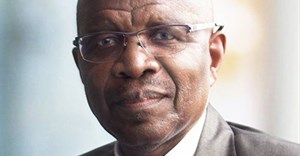
Subscribe & Follow
Jobs
- Marketing Assistant Johannesburg
- Advertising Sales Executive Sandton
- Influencer Campaign Manager Cape Town
- Digital Marketing Internship - Paid Position Centurion
- Chief Marketing Officer Cape Town
- Sales, Marketing and Financial Advisory Durban
- Paid Media Specialist Cape Town
- Marketing Coordinator Cape Town
- Senior Marketing Account Manager Cape Town
- Digital Marketing Manager Cape Town
[2010 trends] 10 trends for a world in flux
![[2010 trends] 10 trends for a world in flux](https://biz-file.com/c/1001/42643.jpg)
- Peak experiences:
- Shift in value systems:
- A new world order:
- Shift of power to ethics:
- The start of the Female Century:
- The rise and rise of social media:
- Niche tribes:
- Pick-and-mix society:
- Ambient awareness:
- Empathetic economy:
The global financial crisis and ensuing recession of 2009 and can be regarded as a global peak experience. Peak experiences refer to these types of events that stand out in our mind, affecting us deeply and in most cases, changing our thoughts and behaviour patterns: 9/11 was a similar global peak experience.
What the crisis and recession has done is made us more aware of our actions (their impact and responsibility we need to take), to our business practices, the planet and our fellow human beings. It has shifted our thinking from a self-centred “me” era, to an era of “us” and “we”.
As a result, people are looking for deeper life experiences, as well as brand experiences (product and services) that stand out. Brands and corporate companies need to adapt quickly to this changing consumer mindset.
A global economic crisis acted as a catalyst to other important issues. Systems that govern our lives are changing and redirecting.
2009 was a year of tumultuous change, which led to a questioning of personal value systems. With global retrenchments numbering tens of millions (and counting), it would be foolhardy to think that there would be no domino effect. Retrenchments, or threat thereof, have forced people to question their life's motives, embarking on a search for purpose.
As a consequence, even the idea of luxury has been turned on its head, with more and more people valuing the idea of extraordinary thoughtfulness, more time with loved ones or premium service over material things such as handbags and branded sunglasses, and other logo-splattered commodities.
This soul-searching has also resulted in a much-needed empathic movement around the world. Whether it is sympathy for a retrenched co-worker, or hostility toward uncaring politicians or greedy corporates, there is a growing civil voice that is calling for a new world order. We are experiencing a broad-spectrum paradigm shift in the way people think, make decisions, and choose to live.
Business will no longer be done as “usual”. The consumer revolution is well and truly underway as more and more consumers take responsibility over their purchase decisions. Despite the downturn, there is an increasing trend towards people spending a little extra and opting for better quality, timeless design and value for money, as well as earth-friendly, fair trade versions of their regular products.
We have moved from a passive consumer to a very active and vocal consumer who wants to be engaged with, not talked at. For advertisers and marketers this is a dramatic shift from “broadcast” advertising to interactive engagement, and brands that do not deliver on this will ultimately be outperformed. It is now necessary for companies and brands to not only engage with their target market, but also embark on multiple conversations to secure loyalty.
We are seeing the beginnings of a shift away from a power-hungry, greed-based, profit-at-all-cost leadership model towards a more ethical and responsible style of leadership. This is most evident in the election of Barack Obama in November 2008. It signals a dramatic shift from the head (logical, egoistic, bottom-line approach) to heart (empathetic, care for the planet and for the entire human family) - notable in the attention being given to CSI programmes of late.
This same shift of style of governance can be seen in South Africa, with the marked difference between the aloof and centralised Mbeki administration and the more engaging and empathetic style of the Zuma administration.
As an extension of the previous point, we can track a move from left-brain, logical thinking, towards a more right-brained, intuitive approach when it comes to leadership and decision-making.
Archetypal feminine principles such as caring for the home and the family are coming into play, the only difference being that now the world is seen as our home, and all the global population, our children. How we organise our society is being commanded from the bottom up.
Most job losses in 2009 occurred in traditionally male-run industries such as the banking sector and manufacturing, and by the start of 2010, there will be more female workers in the US than men (as reported in Time magazine). This is the most significant social change in a single generation, and sees women gaining more power in terms of their income and spend.
Even technology is finding its feminine side. Social networks - which are also becoming more and more pivotal to the way in which we operate our lives - tellingly, mimics how women operate: forming communities and engaging in conversations.
Social media is responsible for the biggest change in social dynamics in the past few years and is literally “rewiring” our brains to think, act and communicate differently than ever before.
People find like-minded friends via cyberspace, and, no matter how obscure their interests, there is always a group to support it. Boundaries such as race, geography and culture have become less important and shared interests matter more. Social media has enabled real-time global conversations and given everyone with access on the planet the ability to publish.
Depending on your age group, Facebook may already be old hat, and early adopters are already looking for the next big thing to surpass Twitter.
Whatever the format, social media has proven to be not just a passing fad, and has resulted in the most dramatic upheavals in industries such as print media and marketing and advertising. Ignore this space at your peril.
The shotgun approach of one marketing strategy for a mass audience is now not only ineffectual but also hopelessly outdated. Traditional, tried and tested methods of marketing and advertising are being thrown on its head.
The idea of “tribes” contests the idea of lifestyle standard measurement (LSM). This model takes into account the unique interests of people, and the ever-splintering niches that define them. You are no longer able to box people in set categories and assume their behavioural patterns are based on an empirical, soulless definition of them as a target market - this understanding (and the types of interaction it presupposes) is moving towards a more organic model that celebrates individuality as a primary factor.
Hence the need for multiple consumer conversations (see trend # 3 - a new world order).
Our new society - buoyed by an increasing number of maturing digital natives (the Net Generation) - has become used to a myriad information ports, shopping sites and “How to...” blogs.
These cyber citizens have grown used to the freedom to customise anything and everything online, and are becoming increasingly frustrated with the limitations of the offline world. They can wear what they want, eat what they want and watch what they want, when they want and how they want. They shun traditional information avenues preferring peer to peer or word of mouth validation of themselves, or a new product that is targeted to their tribe.
They are eco-aware, techno-savvy and distrustful of any voice of authority, be it political or corporate. They demand transparency, accountability and social responsibility as core policies, not badges of honour. They are hesitant in handing over their loyalty to a brand, and will only cede that loyalty if the brand echoes or meets their complex benchmarks of authenticity and integrity.
In an age of information overload, tools are being developed to filter and alert us according to our interests or industry. Thanks to tools such as Twitter and RSS feeds, we can filter exactly what information comes to us, according to our preferences.
Most young people do not read newspapers or watch televised news, their reason being “If it is important enough, it will come to me”. This is in stark contrast to the pre-Internet generation, who were weaned on a one-way, “broadcast” style of learning and information consumption.
In 2010, we should all become accustomed to “skimming”: the ability to absorb vast amounts of information, without the yearning (or perhaps time) for in-depth analysis. The downside to this new skill is the growing concern that we have too much information at our fingertips, but not enough knowledge. The knock-on effect is that we are also becoming busier, but less productive.
The demand for transparency, authenticity and accountability is getting louder and louder.
Civil society demands more ethical traits as we reach a fork in the road concerning the management of our economy. On the one hand, we have a greedy, power-hungry and profit-driven economy where money is wedged at the top, which will always keep the poor and the young at a disadvantage (this essentially is where the problems affecting future of the planet lie).
On the other hand, we have a more social-, ethical- and empathetically-driven economy emerging, which is mindful of the planet, rewards philanthropy and spreads wealth and goodwill throughout all levels of society, spreading wealth - and therefore power - from the hands of a few to the hands of many.
These are both extreme economies, and repeat the age-old ideological battle between capitalism and socialism, but fought with 21st century hindsight. Only this time round the ideology is not between countries, but a race to find a sustainable solution for mankind. After all, we have proved to ourselves in the last two years that, as a species, we have a spectacular ability to self destruct, and will if we don't find a new way forward.
 In February 2010, Bishop Geoff Davies, Dianne Bayley, Dr Craig Nossel, Ferial Haffajee, Menzi Mthethwa, Mokena Makeka, Randall Abrahams, Sylvester Chauke and Toby Shapshak -10 of the country's leading thinkers in a broad array of disciplines - will gather to present their insights into trends beyond the economic meltdown at a one-day conference in takes place in Johannesburg: the 2010 Flux Trends Review powered by BlackBerry.
In February 2010, Bishop Geoff Davies, Dianne Bayley, Dr Craig Nossel, Ferial Haffajee, Menzi Mthethwa, Mokena Makeka, Randall Abrahams, Sylvester Chauke and Toby Shapshak -10 of the country's leading thinkers in a broad array of disciplines - will gather to present their insights into trends beyond the economic meltdown at a one-day conference in takes place in Johannesburg: the 2010 Flux Trends Review powered by BlackBerry.Hosted by trends analyst Dion Chang and building upon the recently published Flux Trend Review The State We're In (published by Pan Macmillan and available at bookstores now), the conference will give a unique South African perspective to social, business, technology, political and marketing trends. For more trends and information about the conference taking place at the University of Johannesburg Theatre (Kingsway campus) on Thursday, 25 February 2010, go to www.fluxtrends.co.za. Cost is R2280 per delegate. Bizcommunity.com is a media partner.


















